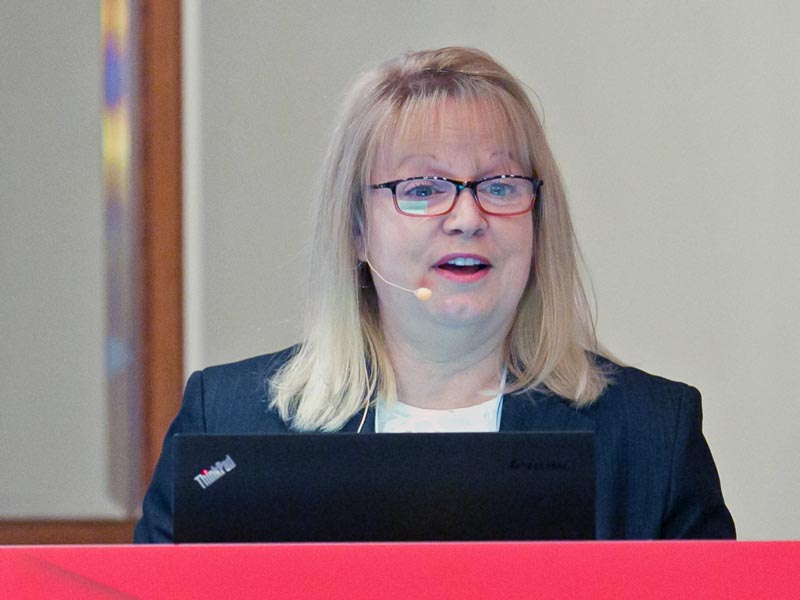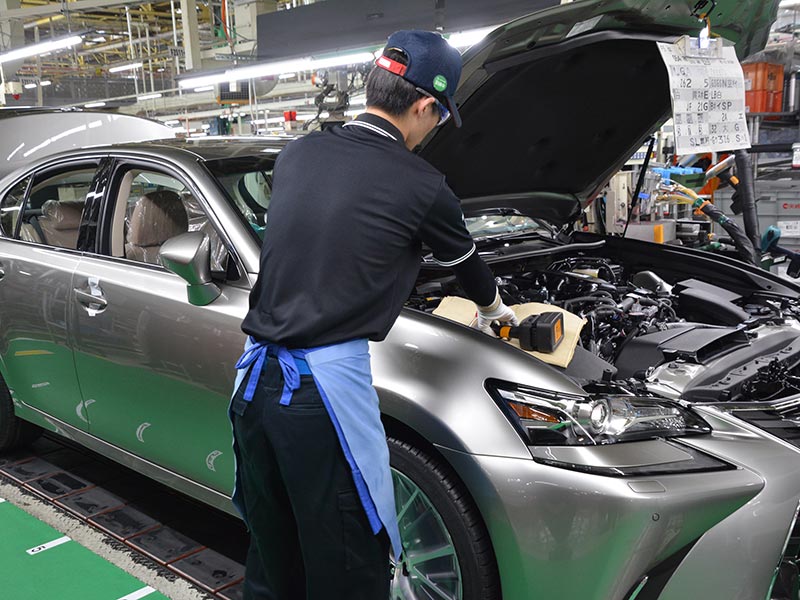
IFC to launch new global engine oil standards in Fall 2021
The critical importance of automotive fluids is often overlooked and undervalued. This can result in a disconnect between what we need and is possible, with what is available, says Teri Kowalski, principal engineer, powertrain division, Toyota Motor North America. Vehicle designs and technologies are evolving at a faster pace than ever before, and consumers and governments are demanding even greater advancements. Lubricants must maintain pace or progress will be hindered, says Kowalski.
Speaking at the ILMA Lube Trends Virtual Town Hall on May 19, 2021, Kowalski suggested that existing systems for the development of automotive fluid specifications are regional, inefficient, and foster duplication. OEMs are becoming increasingly global. Whereas specifications today are often developed on a regional basis, Kowalski explained that the initial goal is to introduce a global engine oil performance standard that is available in Europe, Asia, the U.S., and elsewhere.
Ever-increasing complexity in specification development is elongating the time to develop industry standards and costs are ballooning. Murmurs for change have grown increasingly vocal in recent years. Kowalski herself called for a “thorough and critical review of the category development process” as far back as 2017 during F+L Week in Singapore.
The lubricant industry has taken notice of rising discontent. Following the snail-like pace of development of ILSAC GF-6, the latest engine oil performance standard, there have been efforts to improve the process. A Lubricant Standards Development Review Group was commissioned by the American Petroleum Institute (API) in 2019 to evaluate the process, which currently relies on a large industry-wide group consensus.

However, a group of 11 OEMs have grown weary of the timelines for specification development or seeing substantiative changes to fluid specifications. During SAE International’s WCX World Congress Experience Digital Summit on April 13, 2021, Kowalski announced the formation of the International Fluids Consortium (IFC), a global syndicate that will develop and maintain fluid specifications to optimise vehicle performance. She advised ILMA Virtual Town Hall participants that the new system will improve the efficiency, quality and reduce regional development and validation costs in the fluid specification process. A global specification will also ensure consistent fluid performance worldwide, she says.
The 10 remaining automakers were not named during the ILMA Town Hall, but the IFC told F+L Magazine that the OEM members are now meeting regularly. Additional OEMs are still working through the legal aspects of IFC membership, says Mike Kunselman, business development manager at the Center for Quality Assurance (CQA). CQA has been selected to administer the program for the IFC. Of the 11 OEMs, seven represent Asia, three represent Europe, and one represents North America, says Kunselman.
Kowalski would not be drawn on whether OEMs had lost faith in the current standards-setting organisation for North America. The American Petroleum Institute (API) administers the Engine Oil Licensing and Certification System (EOLCS)—a voluntary licensing and certification program for engine oils in approximately 59 countries comprising 20,000 certified engine oils.
The system has changed over the years and has become a slow process, and very ineffective for the changes the OEMs need, says Kowalski. The entire structure of the ILSAC GF categories has outlived its life, she says. ILSAC GF-6 first licensing began in May 2020, though development began in 2012.
IFC offers an alternative process in which OEMs define the fluid need for their vehicles and then set the course for the industry partners to deliver upon, says Kowalski. This will reduce time and expense invested in reaching an agreement and implementing a new specification, she says. Retirement and corporate downsizing have resulted in a “significant loss of fluid expertise.” The Toyota representative believes the process will offer the best use of limited resources and will enhance collaboration among a shrinking pool of experts.
Kowalski, who has previously served as auto-chair of the Auto-Oil Advisory Panel (AOAP) and as a spokesperson for ILSAC GF-6, told ILMA Virtual Town Hall participants that the IFC specification development process will reduce a trend towards multiple individual specifications and associated market fragmentation. OEMs will provide clear direction and operate in partnership with industry participants for a common goal, she says.
There is no denying the need to reduce costs and hasten the development of new categories. However, if OEMs define fluid needs and set the course for industry partners, will lubricant companies lose their voice?
Kowalski stressed that the IFC will unify the industry and provide a “neutral” platform to collaborate. But will it? Surely this was the concept behind the EOLCS—everyone gets a vote. Although the IFC is structured with OEMs responsible for final decisions, they realize that they cannot operate without collaboration from lubricant technologists and manufacturers. Quizzed on whether any lubricant manufacturers are involved in the program, Kowalski advised that “the focus is on OEMs” at the time of the ILMA Town Hall meeting. Since that time, the IFC has continued dialogue with lubricant manufacturers and marketers and anticipates them joining as Industry Affiliate members who can participate on IFC’s technical committees.
Kowalski says the IFC is currently determining the members of a Raw Material Interchange technical committee who will be responsible for determining which practices are permitted within the IFC’s performance standard guidelines.
IFC is a not-for-profit organisation. Membership is voluntary and open to industry participation. Membership comprises strategic OEM members—who will guide the overall direction; standard OEM members—who will contribute technical expertise; and industry affiliates that wish to collaborate on the development of fluid specifications.

Positive industry involvement and communication are critical to the success of IFC, says Kowalski. The Toyota representative highlighted the formation of a Technical Advisory Council as a means for all stakeholders to have input. Through the Technical Advisory Council industry affiliate members have a direct voice to the IFC board of directors—providing the structure for an open exchange of information, she says.
The intent of the IFC global specification is not to replace the standard-setting organisations, says Kunselman—many of whom do a lot more than just developing performance standards. IFC will “harmonize specifications globally by improving productivity and performance while streamlining specification development and validation.” Consolidating specifications and eliminating unnecessary ones will be a central focus. Kunselman mentioned the opportunity to pool standards as an advantage we have not seen in the past. Always a contentious issue, a decision on whether the new IFC specifications will be backward compatible is still under discussion, says Kowalski.
IFC intends to develop and administer a licensing program for its international automotive fluid specifications and to promote the global awareness, availability, and use of IFC-approved fluids. Kowalski suggests the new structure will simplify the identification of engine oils for consumers. Though, if IFC specifications are not supplanting other certification programs— there must be a risk of escalating the guesswork for customers.
With a stated aim of developing new specifications more quickly, how quickly can we expect to see the new IFC standards in the market? IFC will accommodate the varying needs of OEMs around the world, with a particular focus on low and traditional viscosity engine oils, electric driveline fluids, low ash, extended life, and light-duty diesel, says Kowalski. Decisions regarding individual specifications will be determined by OEM members and multiple standards may be developed simultaneously to close the gap between vehicle needs, she says.
The current focus is on engine oil specifications that cover a fuller range of viscosity grades than what is available today. Viscosities below 0W-16 are a priority as there are currently no global specifications and high demand, says Kowalski. The consortium is currently working on a timeline, however, feedback from OEMs indicates a desire for a low viscosity specification in the marketplace as soon as next summer, she says. IFC will announce their first specification “relatively soon,” says the Toyota representative. Moving forward, OEMs will be able to time specification upgrades to support new vehicle technology and meet marketplace demand—such as regulatory considerations and expectations from consumers, says Kowalski.







